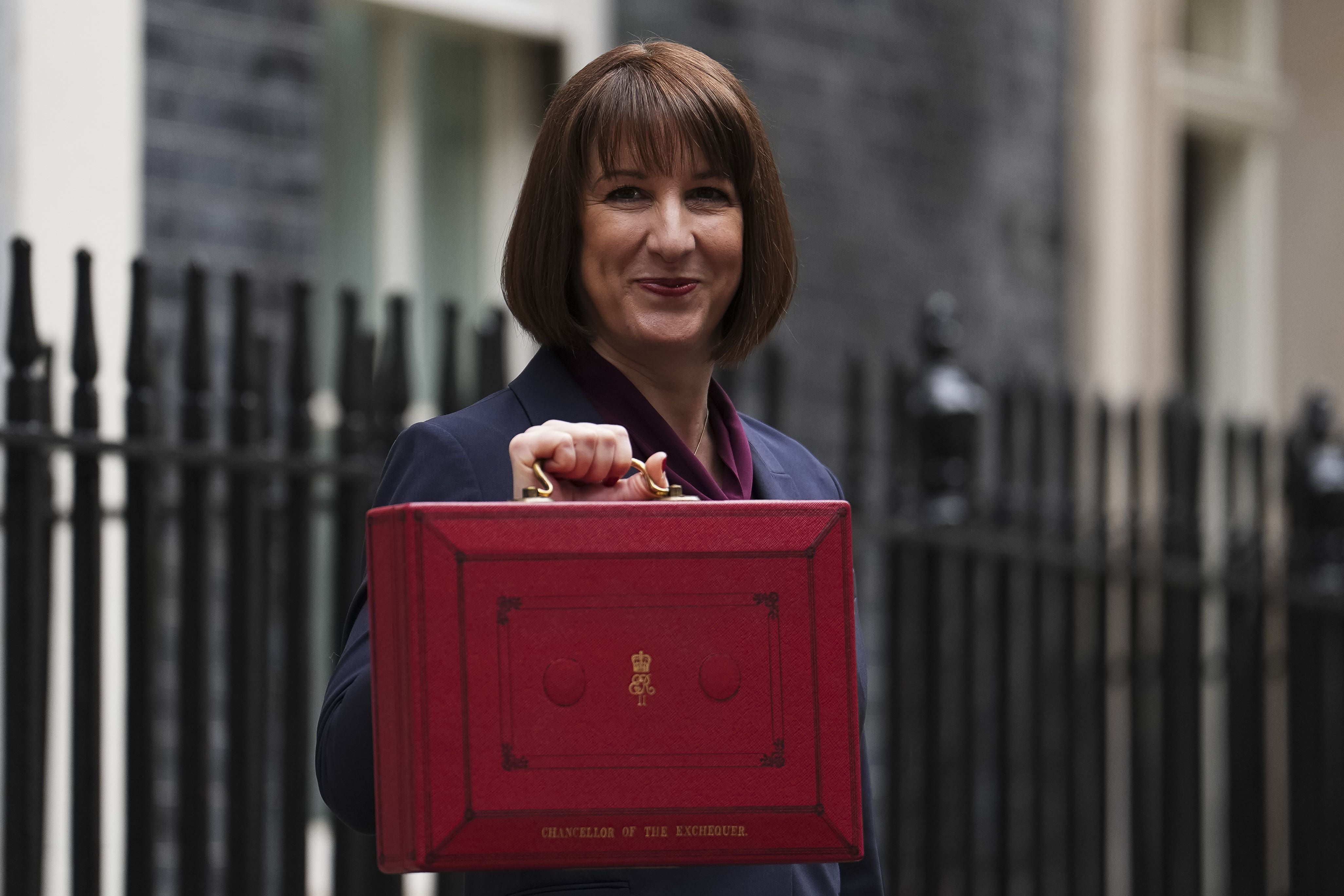Sir James Dyson has condemned Labour’s Budget as “spiteful”, warning her so-called tractor tax will be the “death of entrepreneurship”.
The leading British businessman – who employs more than 2,000 people in the UK - claimed that the new government will “kill off home-grown family businesses”, dubbing the changes an “ignorant swipe at aspiration”.
The Budget – Labour’s first for nearly 15 years – saw the chancellor tighten inheritance tax relief on business property, meaning firms passing down assets worth more than £1m will be charged 20 per cent.
A 20 per cent levy on farms worth more than £1m has also been introduced, meaning inheritance tax will be applied to family farms for the first time in history.
Writing in The Times, Sir James said: “Rachel Reeves is killing off established family businesses, and any incentive to start new ones, with her 20 per cent Family Death Tax, levied each time a family business passes a generation.
“Every business expects to pay tax, but for Labour to kill off homegrown family businesses is a tragedy. In particular, I have huge empathy for the small businesses and start-ups that will suffer. Labour has shown its true colours with a spiteful Budget.”
But home secretary Yvette Cooper rejected the criticism, insiting the government had brought forward a “very positive Budget”.
Asked about his remarks, she told Sky News: “Well, I clearly don’t agree with that. I think the opposite is true.
“This was a Budget that was about fixing the foundations. We did inherit the shocking state of the public finances that was much worse than we had anticipated and also very weak growth in the economy and the state of our public services, particularly our National Health service which had really been pushed onto its knees.”
“Of course that has meant some difficult decisions, we don’t run away from that. We would not have been able to turn our backs on that”, she added.
Peter White, founder of pharmaceuticals manufacturer Nova Laboratories, said the change would make it harder for him to pass his business on to his children.
“My son will now need to personally generate approximately £26m of liquid cash on my death to continue to own and manage our pharmaceutical company. This is 40 times his personal wealth, including the value of his family’s home and all possessions,” he said.
Tom Bradshaw, head of the National Farmers’ Union, said reversing the plans is the “only sensible course of action”. His comments come as he prepares for crunch talks with the environment secretary on Monday.
Mr Bradshaw said the prospect of being unable to pass their businesses on to their children would be “the final straw” for many farmers who have “nothing left to give”.
“The vast majority of the people who will bear the brunt of this decision aren’t wealthy people with huge cash reserves hidden away”, he wrote in The Telegraph.
“They are families that have often spent generations building up their farm businesses to provide food for the nation, often on very tight profit margins.
“Their businesses have struggled through all the changes caused by Brexit, they’ve suffered years of being squeezed to the lowest margins imaginable, with costs of production skyrocketing, they’ve been battered by increasingly extreme weather conditions. They have nothing left to give.”

Tax experts have suggested the changes could affect fewer than 500 farms a year, once the tax thresholds and farmers giving their property to their children before they die are taken into account.
Over the weekend, Rachel Reeves said continuing with the tax relief is not affordable “when our public finances are under so much pressure”.
“Only a very small number of agricultural properties will be affected, but last year the benefits of agricultural property relief, 40 per cent of the benefit was felt by 7 per cent of the wealthiest land owners.
“I don’t think it is affordable to carry on with a relief like that when our public finances are under so much pressure,” the chancellor told the BBC’s Sunday with Laura Kuenssberg.
Ms Reeves has denied the Budget was about class, saying: “It wasn’t an ideological Budget, it was a Budget where we had to raise £40 billion to put our public finances on a firm footing and also to ensure our state schools, our NHS are properly funded and that we can build the homes and indeed invest in those long-term investment opportunities … to grow our economy and bring good jobs paying decent wages.”







